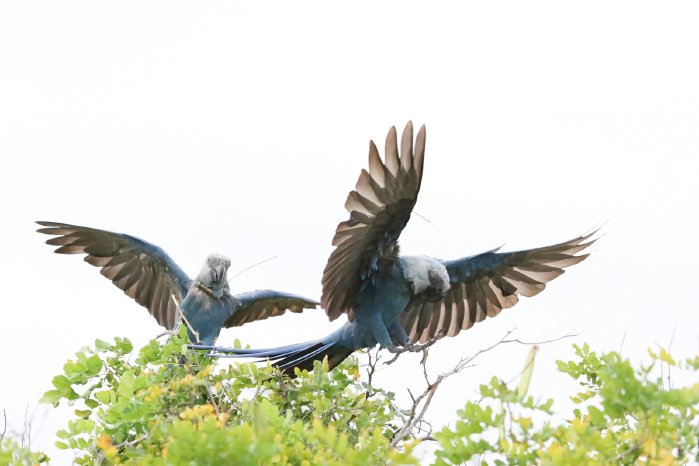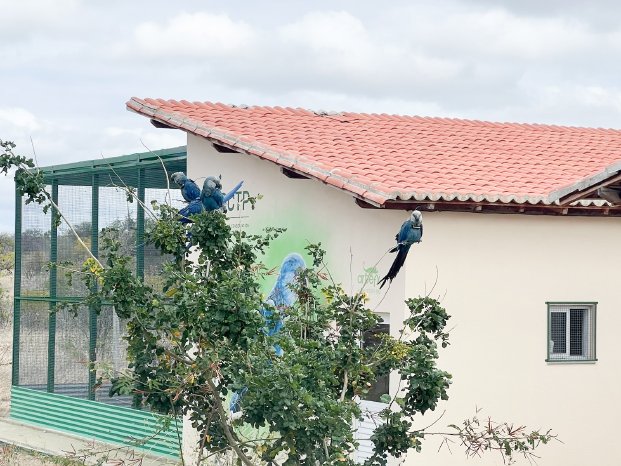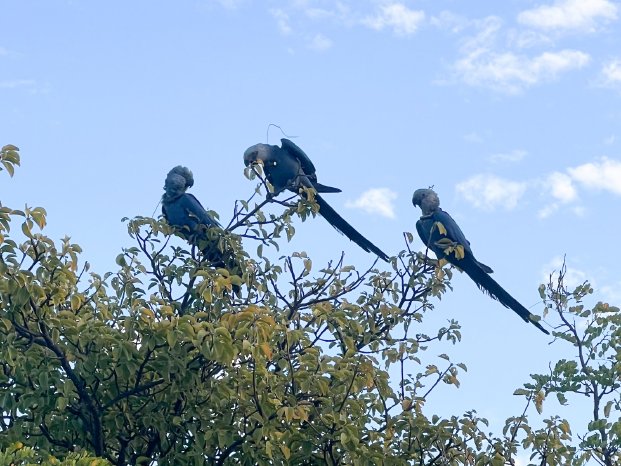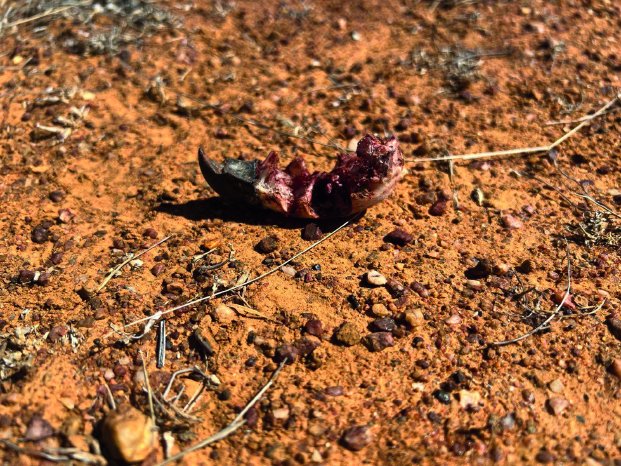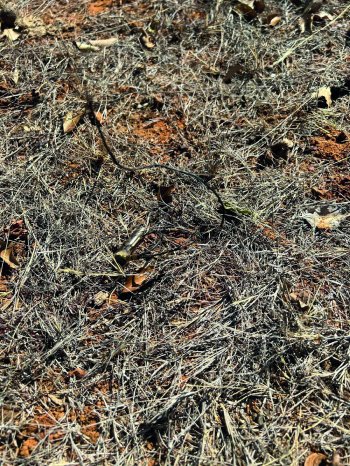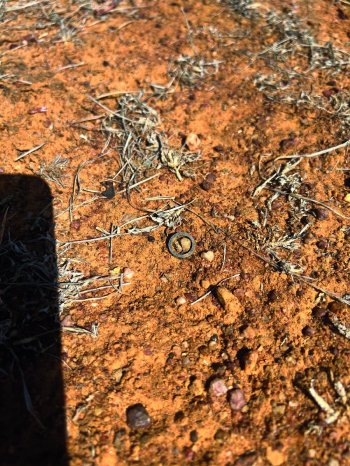Immediately upon release, all eight macaws quickly began adapting to their new habitat, making exploratory flights together, foraging on native plants, and observing and learning essential survival skills from other native psittacines in the area, such as the Illiger’s macaws. After three months post-release, the results to date have been nothing short of amazing, with 75% of the released birds still alive and together as a flock near the release site.
“However, as with all such efforts, some losses were expected,” declares Tom White, wildlife biologist and advisor to the project. “Thus, while unfortunate, it came as no surprise to us that a couple of the released birds eventually left the vicinity of the release area and went out “exploring” on their own.”
The first Spix’s macaw went missing on August 25, 2022. After eight days, it was relocated via radiotelemetry some distance away and was sighted flying and foraging with a flock of native parrots before its signal was once again lost. The other one also, for unknown reasons, left the release area on September 6, 2022. Sadly, however, the next day this solitary macaw fell prey to an avian predator a few kilometers from the release site.
Reintroductions are extremely challenging for any species, especially for one that was previously extinct in the wild. Although losses may inevitably occur, careful and meticulous planning and execution can help to greatly reduce or limit such. Indeed, losses themselves also present opportunities for continued learning and assessment of techniques and strategies. Dr. Cromwell Purchase, ACTP Director Brazil, and Manager of the Spix's Macaw Release Center in the Caatinga explains: “What our results to date tell us is that the macaws are successfully adapting to the wild, the radio-tracking devices are working as designed, and our overall strategy has thus far proven sound and effective. The released macaws are gradually becoming independent; most remain together as a flock, and all are becoming increasingly adept at obtaining resources”.
Many of the parrots are now of breeding age, and biologists and researchers hope they will attempt to nest during the next breeding season. The release of an additional, larger group is already planned by year’s end. The team of the German wildlife conservation association, the Association for the Conservation of Threatened Parrots e.V. (ACTP), and the federal agency ICMBio employees anticipate that these parrots will then join the flock of birds released in June.
Tom White is also confident. "Step by step...release by release... a resident wild breeding population will thus be established. So far, the Spix’s macaws are “doing their job,” and it is up to us to continue to do ours”!
More information on the Spix's macaw:
The Spix's macaw has been renowned worldwide since the film "Rio." The animal was discovered around 200 years ago by the German naturalist Johann Baptist von Spix. Its original home is the Brazilian Caatinga, a Savannah landscape located in the northeastern federal state of Bahia. Today, the Spix's macaw is one of the rarest birds in the world. Due to its distinctive blue color, it became a popular target for poachers and collectors worldwide in the past. Man's destruction of its natural habitat and the illegal trade caused the population in the wild to decline steadily in the 1980s and 1990s until, in 1990, only one bird was living in the wild. Ten years later, the species was officially declared extinct in the wild by the International Union for Conservation of Nature (IUCN). Only a minimal number of privately-owned birds worldwide had survived. Breeding seemed impossible as the genetic pool was too limited to maintain a healthy genetic diversity in such a small population.
About ACTP e.V. - Association for the Conservation of Threatened Parrots e.V.:
Association for the Conservation of Threatened Parrots e.V. (ACTP) is a registered non-profit association. The association was founded in 2006 and has its headquarters in Berlin. He dedicated himself to protecting, preserving, and building up endangered parrot populations and their habitats. In 2008 the association bred the first Spix’s macaws in Berlin. Association website: act-parrots.org
About ICMBio:
A federal agency, responsible for the conservation programs in Brazil. It is the coordinator of the Spix’s-Macaw-Action-Plan and captive breeding program. It is the manager of the Spix’s macaw wildlife refuge and environmental protected area. Agency website: gov.br/icmbio/pt-br
more information: spixs-macaw.org
hashtag: #spixsAreComingHome
more footage: vimeo.com/actp
